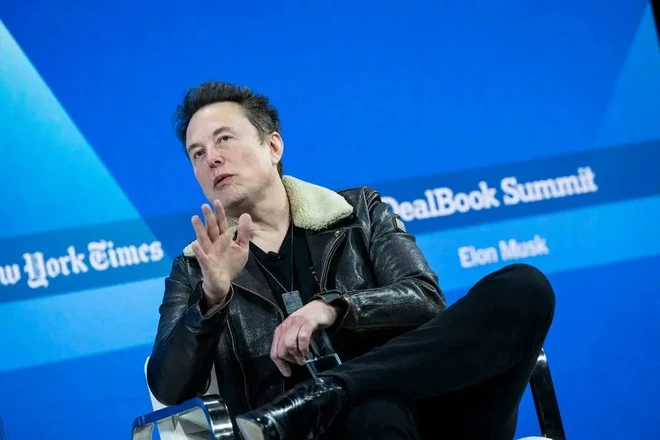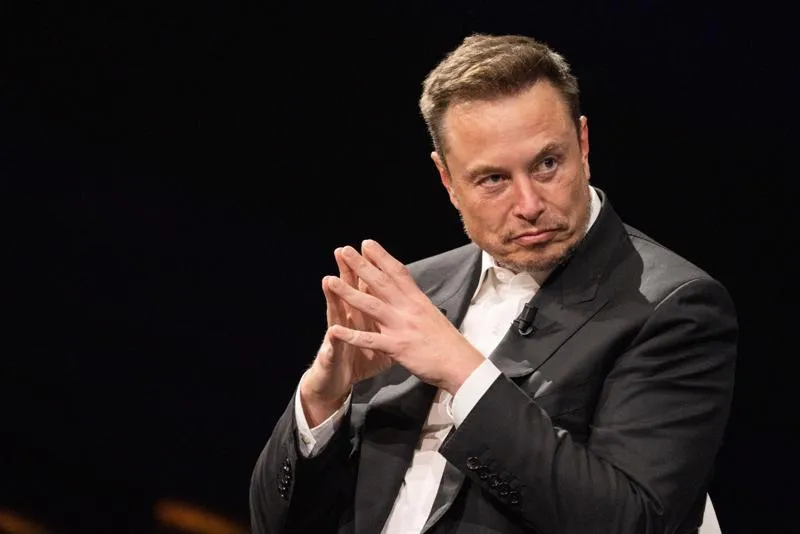Harrison Butker, who has made headlines for his impressive kicking abilities, recently faced scrutiny for comments he made regarding a controversial topic that has divided public opinion. While the specifics of his remarks were initially met with a mix of support and backlash, Musk’s intervention has undeniably amplified the conversation. The Tesla and SpaceX CEO, known for his bold statements and unapologetic approach, articulated his stance clearly: “I Stand with Harrison and Freedom of Speech.”
Musk’s statement comes at a time when discussions surrounding free speech have become increasingly prevalent. In recent years, athletes have taken more vocal stances on social issues, using their platforms to advocate for causes they believe in. This phenomenon has not been without its critics, as many argue that public figures should remain apolitical or that their opinions should not influence the wider audience. However, Musk’s backing of Butker signals a shift, suggesting that high-profile individuals can use their influence to support fellow athletes facing public scrutiny.
The implications of Musk’s support extend beyond the sports field. With over 100 million followers on Twitter, his endorsement brings significant visibility to Butker’s situation, inviting both allies and detractors to join the conversation. The response has been mixed; while many fans of the Chiefs and supporters of free speech have rallied around Butker, others have expressed discontent, questioning the appropriateness of Musk’s intervention in sports-related controversies.
In the world of professional sports, where athletes are often scrutinized for their personal beliefs and actions, Butker’s experience resonates with many. The kicker has consistently been a role model on and off the field, known for his dedication to the game and his community. Musk’s support could bolster Butker’s reputation, framing him as a figure who is unafraid to express his views, despite the potential fallout.
Musk’s involvement also brings attention to the broader implications of free speech in society. The debate often centers around what constitutes acceptable discourse and who gets to define it. In Butker’s case, supporters argue that his right to speak freely should be protected, while critics argue that public figures should be held accountable for their statements. Musk’s statement acts as a reminder that freedom of speech is a foundational principle in democratic societies, one that enables open dialogue and the exchange of ideas, even in contentious arenas.
As the narrative unfolds, it remains to be seen how this endorsement will impact Butker’s career and public perception. Will he become a symbol for free speech in sports, or will the backlash intensify? In the volatile landscape of public opinion, athletes like Butker are learning to navigate the complexities of their platforms while balancing personal beliefs with professional responsibilities.
The Kansas City Chiefs’ fanbase, known for its passionate support of the team, is likely to rally behind Butker in light of Musk’s endorsement. This incident could serve as a rallying point, uniting fans around the concept of standing up for one’s beliefs, regardless of the challenges that may arise. In the coming days, it will be interesting to observe how this situation evolves and whether it encourages other athletes to speak out on issues they care about.
In conclusion, Elon Musk’s public support for Harrison Butker underscores the intricate relationship between sports, celebrity culture, and freedom of speech. It opens the door for meaningful discussions about the role of athletes in society and the importance of standing firm in one’s convictions. As both figures navigate this complex terrain, their actions may inspire a new generation of athletes to embrace their voices and advocate for the principles they believe in. Whether this moment will serve as a catalyst for change or merely a fleeting moment in the spotlight remains to be seen, but one thing is clear: the conversation about free speech in sports is far from over.






0 Comments